I have a switch statement to handle an java enum foo, and am using spock to write some groovy unit tests. I have already added a test which verifies that every type of foo is currently handled without throwing an exception. Now I want to test that an unrecognised type of foo will cause an exception to be thrown.
To do this I will have to mock an enum, and have already seen the solution outlined here: Mocking Java enum to add a value to test fail case
I also know that it is possible to do with powermock, but I really like spock, as I find it incredibly lightweight and so was looking for a solution using spock.
I thought something like this might have worked:
def "An unexpected type of foo causes an exception to be thrown"() {
given:
Foo foo = Mock()
when:
subjectUnderTest.handleFoo foo
then:
thrown Exception
}
However, this fails with the following error message:
org.spockframework.mock.CannotCreateMockException: Cannot create mock for class com.Foo because Java mocks cannot mock final classes. If the code under test is written in Groovy, use a Groovy mock.
I was wondering if anybody knew of a way to do this using spock, as I can't find a solution on any documentation.
Edit After some of the comments below, I feel it is best to clarify why I want to write these tests.
I work in a team with quite a few developers, and it is quite possible that one of them will update the enum. I want tests to fail if this happens to make the developer aware that they need to add logic to handle the new enum type. For this, I wrote a test that iterates over every possible value that the enum could have, passed it into the method and verify that no exception is thrown. Now, if a user added a new enum, this test would fail as there is nothing to handle it so an exception would (hopefully) be thrown.
The second test (the one I am struggling to write) is to clarify that the default logic works as I would expect it to, and that an exception does in fact get thrown. The only way I can think of doing this without creating an enum value that I will never want to be used is to mock an enum, and test that an exception gets thrown if the enum value is not handled.
The code looks like this:
Enum Foo:
public enum Foo {
ONE, TWO;
}
Method to handle foo:
private void handleFoo(Foo foo) {
switch (foo) {
case ONE:
doEventOne();
break;
case TWO:
doEventTwo()
break;
default:
throw new IllegalArgumentException("Do not know how to handle " + foo);
}

